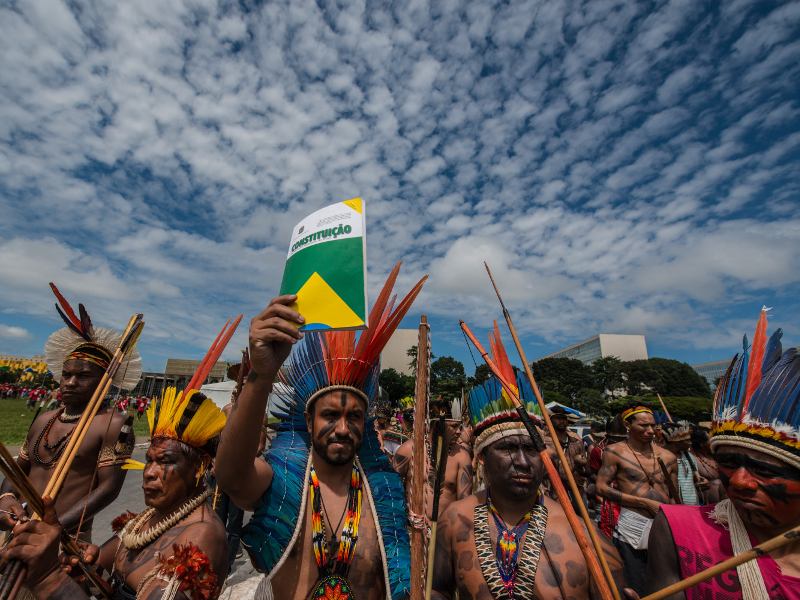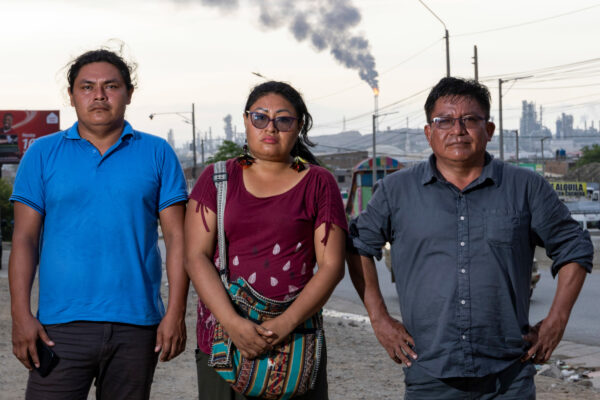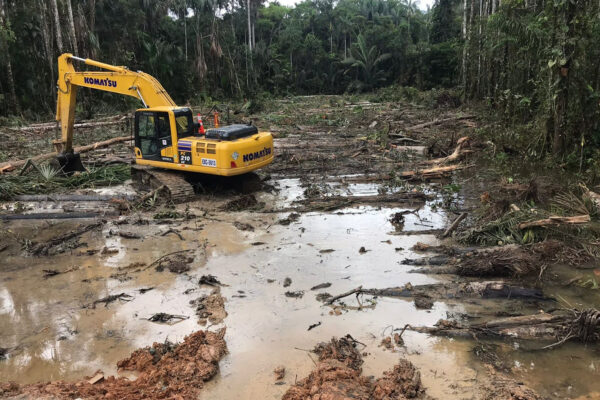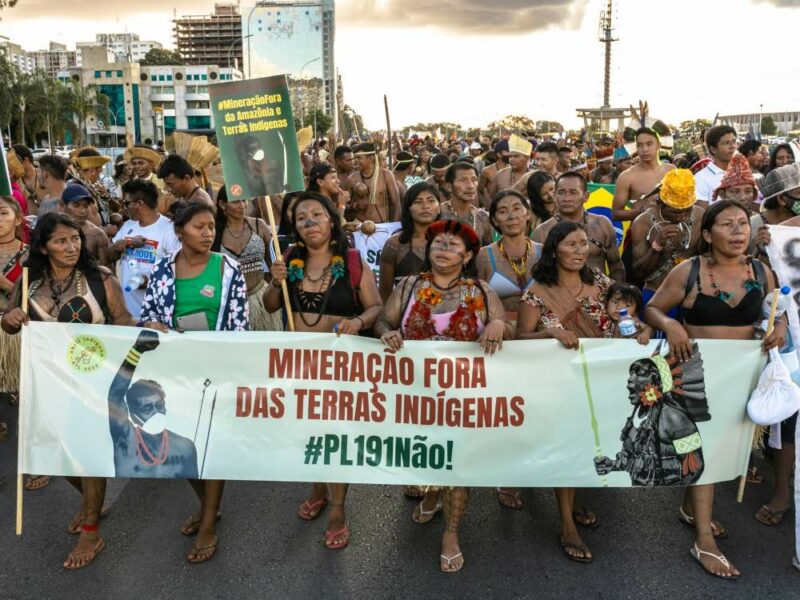
This week, Brazil’s highly unpopular President Michel Temer signed a legal opinion from the office of his Attorney General (AGU) that directs his government’s administration to paralyze all indigenous land demarcations in the country. The move continues a string of devastating assaults on human rights and environmental protections that blatantly cater to Brazil’s regressive “ruralista” agribusiness lobby, which Temer is courting in the run-up to a congressional vote next week that could remove him from office to face charges of rampant corruption.
While potentially halting 748 pending cases to demarcate tribal lands, the measure also illegally attempts to strip indigenous peoples of their constitutional rights to permanent and exclusive use of their territories, claiming these rights cannot overrule “national interests” such as military operations, road construction, communications infrastructure, and hydroelectric dams. Such projects would be authorized in native territories without respecting the indigenous right to consultation.
Imposing a highly contentious “time frame” (marco temporal) clause, the AGU’s opinion only recognizes the land claims of indigenous peoples that have continuously occupied their territories since Brazil’s 1988 Constitution was enshrined, ignoring common situations in which communities were brutally driven off their lands. Authoritarianism is a key concept here: Temer’s blatant disregard for indigenous rights runs parallel to acts committed in the absence of democracy, during the military dictatorship (1964-1985) – a situation the country increasingly confronts today.
Brazil’s dictatorship and its current political crisis share a common denominator: the ascendant power of a conservative rural elite posing as a modern agribusiness sector. A steadfast ally of the authoritarian coronels of Brazil’s past, they now constitute Mr. Temer’s political base and offer his only chance of political salvation from a mushrooming corruption scandal and indictment that threaten to see him removed from office and investigated by the Supreme Court. Accordingly, the President has obediently done their bidding, enacting a draconian ruralista wishlist that guts indigenous territorial rights and opens vast protected areas in the Amazon to unfettered destruction. Indeed, mainstream media characterized this paradigm as trading trees for votes.
“Michel Temer is cutting indigenous rights to remain in power by attending to ruralista interests,” said Luiz Henrique Eloy, a lawyer for Brazil’s Association of Indigenous Peoples (APIB). “The Temer government wants to remain at all costs, which requires the votes of the ruralista bloc.”
Anticipating the AGU decision and its endorsement from the president, the ruralista lawmaker Luiz Carlos Heinze – notorious for his comments that indigenous peoples, escaped slave communities (quilombolas), gays and lesbians are worthless – gleefully acknowledged that the agribusiness bloc pursued this agenda with Mr. Temer from the first day of his administration, when his party seized power with the removal of President Dilma Rousseff.
“In my evaluation, over 90% of Brazil’s [pending demarcation] processes are illegal and will be archived,” said Mr. Heinze, claiming the measure represents “a new direction for Brazilian rural producers.” Attorney General Grace Mendonça’s statement goes further, making the absurd assertion that her opinion will “bring judicial security to indigenous people” by “standardizing understandings and diminishing social and landholding conflicts across the country.”
“What diminishes rural conflicts is indigenous land demarcation,” said Juliana de Paula Batista, a lawyer at Brazil’s Socio-environmental institute (ISA). “To the contrary, what causes conflicts is the message from executive power and from Congress that it is possible to mitigate the constitutional rights of indigenous peoples. This is a clear message from a president that seeks to keep his job at any cost, including by offering amnesty to land grabbers, invaders of Conservation Units, and by disrespecting peoples whose rights have been historically violated.”
The AGU’s opinion directly violates article 231 of the Brazilian Constitution, which guarantees indigenous people “the right to traditionally occupied land.” It also interferes with contentious land titling processes, such as the Munduruku struggle to demarcate their ancestral dominion Sawré Muybu, that are flashpoints for rural conflict. Definitively barring their demarcation efforts – as President Temer and his ruralista bosses propose – would do anything but “bring judicial security” to the Munduruku.
Worse still, it directly contradicts Brazil’s commitments to international agreements on indigenous rights, such as Convention 169 of the International Labor Organization (ILO) and the United Nations Declaration on the Rights of Indigenous Peoples (UNDRIP).
The office of Brazil’s Federal Public Prosecutors (MPF), a constitutional watchdog agency, issued a scathing statement and is preparing a rebuttal to the AGU’s opinion, based on its clear unconstitutionality. The country’s National Indigenous Movement (MNI) and their allies are also organizing resistance to the measure, which had proven critical to reversing similar, past regressions. In a statement, the MNI calls for support from social movements and society in general to impede these violent actions.
Catering to ruthless ruralista greed and motivated by a foolish determination to hold onto power with no mandate while under indictment, President Temer is personally driving an unprecedented series of assaults on human rights and environmental protection in Brazil. His actions must be categorically denounced as they portend disaster for native peoples, endangered biomes such as the Amazon, and humanity as a whole.













